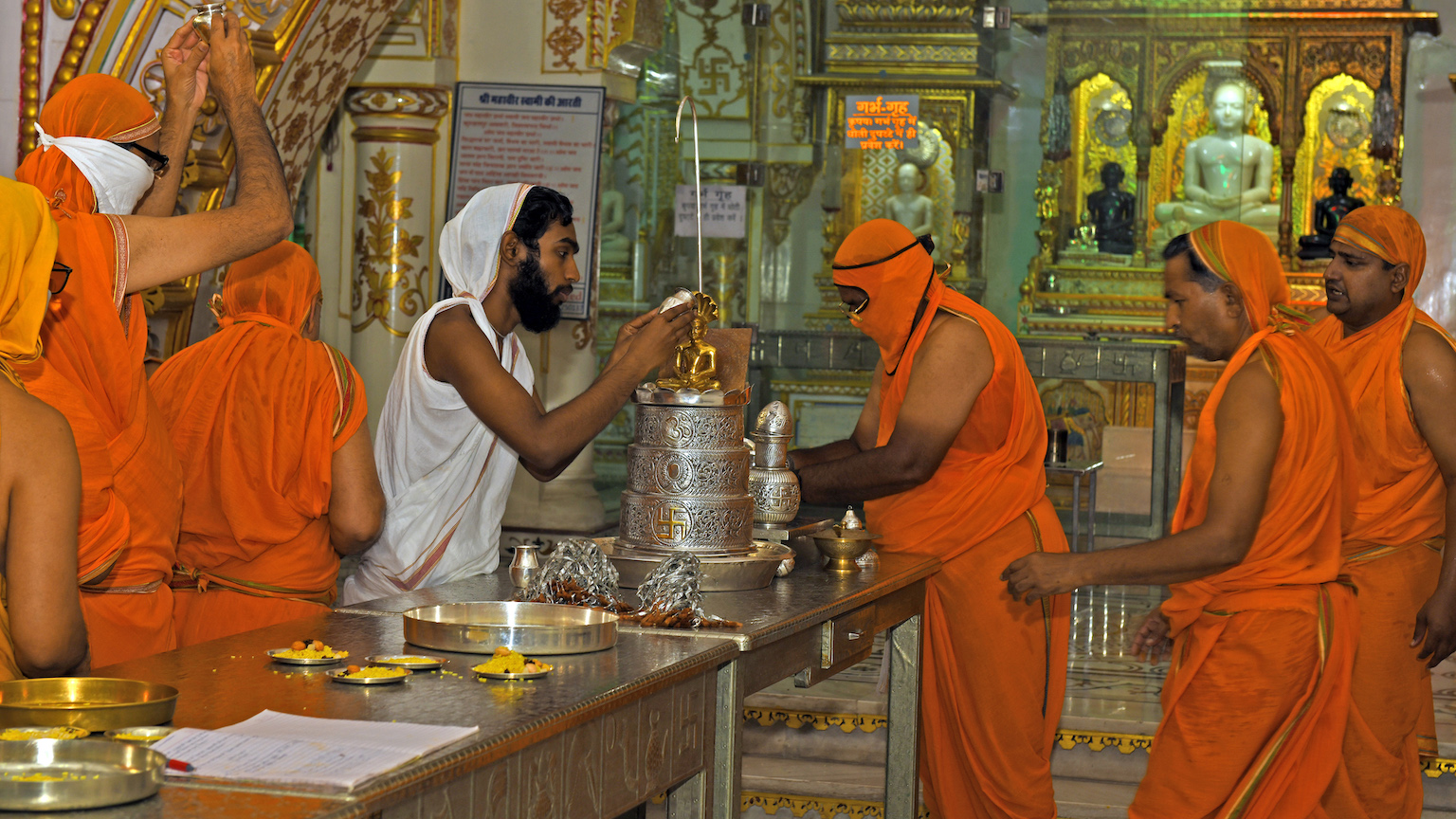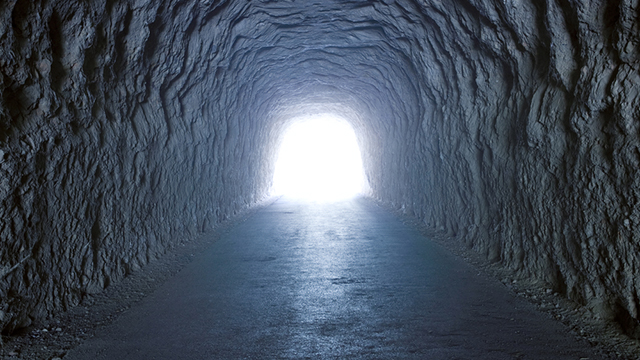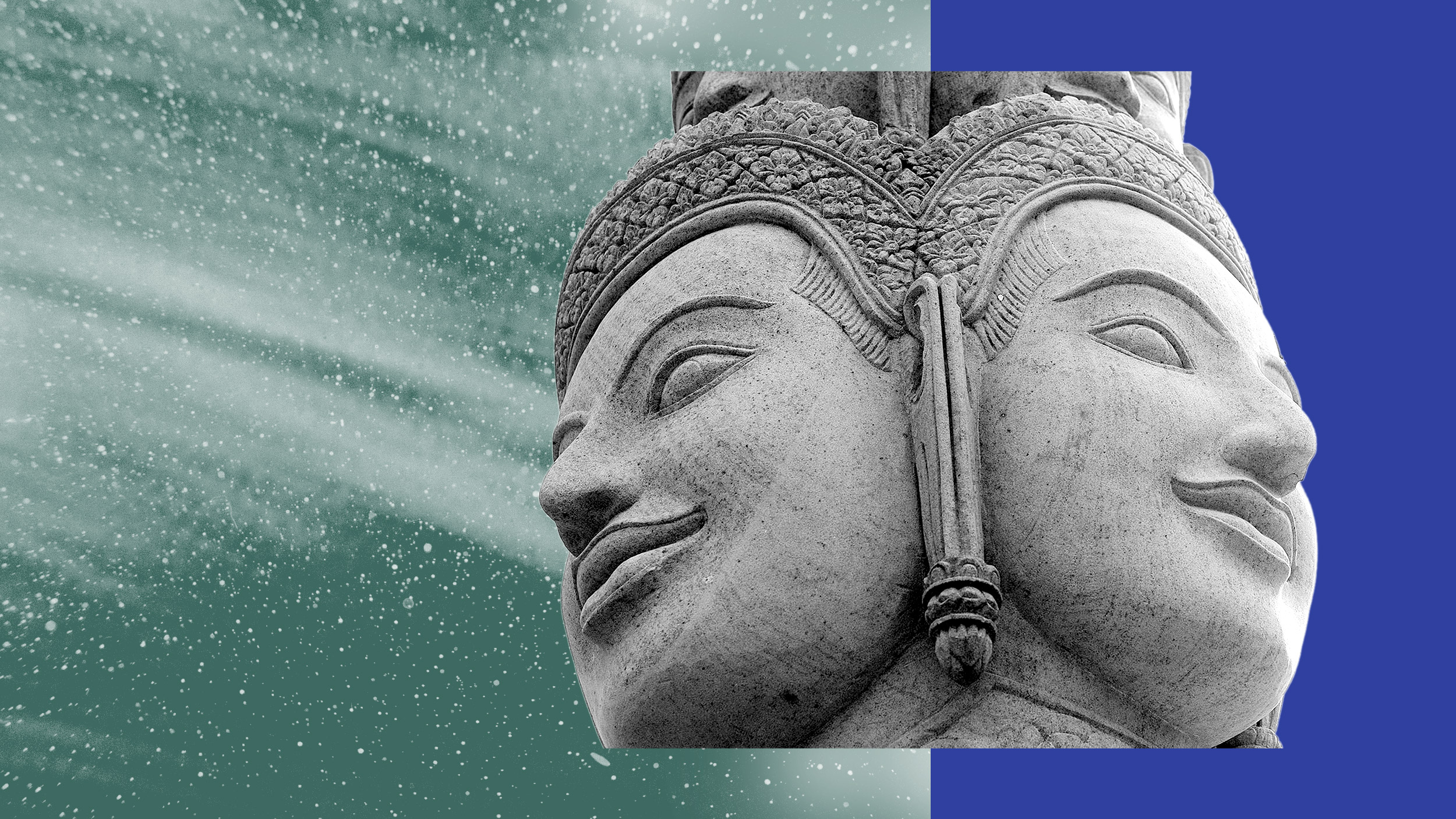Extreme asceticism: the Jains who starve themselves to death

- Asceticism is a near-universal trait found across all cultures in human history. It argues that denying the material world and the self brings about richer spirituality.
- Jains believe that bad action and thought (karma) will weigh the soul down and so condemn us to an unfavorable rebirth after we die.
- To take the “vow of sallekhana” is to withdraw from the world by denying yourself food and water. It hopes to rid the soul of karma and secure a better life after this one.
You are sitting on a park bench, enjoying the sun on your face, watching two birds dance in the leaves. Your breathing is deep and slow, your mind still and calm. You are utterly at peace, lost in a quasi-mystical peak experience. Then your phone buzzes. Unthinkingly, from years of conditioning, you reach to see what is going on. It’s your news app informing you of a new update. You’re wrenched from the moment, and life comes crashing back. As you look at your phone, you think (not for the first time): why don’t I just get rid of this damned thing?
If you believe the wisdom of millennia, across most known cultures of the world, you’d be right to — because “asceticism” is a near-universal of humankind.
Deny the self and accept the One
The word “ascetic” was once used in ancient Greece to refer to athletes who diligently, intensely, and even obsessively drilled themselves for some sport. Olympic athletes who trained from sun up to sun down, to be the best in the world, were called ascetics.
Yet, this idea of the pursuit of worldly glory and victory is far removed from most ascetic traditions in history. Asceticism has come to mean the belief that the trappings of life — luxury, lust, envy, greed, and so on — get in the way of meaningful human experiences. It is often found in religious traditions, where sin, temptation, or desire prevent us from contemplating the true, spiritual reality. Christians, Hindus, and Buddhists, for instance, are joined in seeing the material world as an ephemeral distraction from God, the One, or Moksha.
Ascetism has secular roots, too. In Ancient Greece, the Stoics placed great value on controlling one’s reactions to the world around us, and asceticism is a great training of the mind. The Cynics, too, saw luxury and “civilization” as the debasing of a natural, purer human spirit. Today, asceticism can manifest as an aesthetic trend, as seen in minimalism, or it could be a political position, like “preppers” living off-grid in Maine.
But the most demanding forms of asceticism are usually tied to religion. Many religions demand that we forego the worldly and rid ourselves of attachments to trivial and transient things. At one end, it might simply be an occasional ritual fast or saying no to one more beer. At its extreme, it might mean celibacy, flagellation (whipping yourself), or, as we shall in Jainism, death-by-starvation known as “Sallekhana.”
Lightening the soul with Jainism
Jainism shares many beliefs with Buddhism and Hinduism but is arguably a stricter interpretation of their various doctrines. Jains believe in reincarnation, in which we are reborn into a new body or life form based upon our good or bad deeds in this life. When we do evil (which includes evil thoughts), our souls are weighed down by karma. For Jains, there is no “good and bad karma” — all karma is bad, since it chains us to the material world. And where karma is seen as a process or a system in Hinduism or Buddhism, Jains believe that it’s a literal atomic substance that binds the soul on Earth. As such, the greater our soul is weighed down by karma, the more likely we are to be reincarnated as a lesser being.
The worst of all sins for Jains — the source of most karma — comes in violence. Of course, this means violence to other human beings, but it also includes violence to any life form at all. Those who fight and bicker get karma but so too do meat eaters. One interesting point about Jainism is the all-encompassing nature of its reverence for life. Pretty much all conceivable life possesses “jiva” (or a soul) — humans, dogs, ducks, trees, root vegetables, and even microbes. It’s not uncommon for Jains to be strict fruitarians who only eat fruit that has fallen naturally from a tree. To pull even a parsnip from the ground would amount to violence.
Asceticism by withdrawing from life
Of course, taken to its logical conclusion, it is nearly impossible for Jains to live without harming some kind of living jiva. Breathing kills microbes, drinking harms bacteria, eating digests life forms, and even walking risks harming some insect or grass. Many ascetic Jains actually will have a special feather-broom they sweep ahead of themselves to avoid this accidental treading.
Some Jains choose to take the “vow of sallekhana,” in which an ascetic will deprive themself of food and water until their body shuts down and they die. Usually this is done gradually over many years, for instance, by having one less grain of rice or one less sip of water every day. The idea is that by withdrawing from the world in this way, you are consciously seeking to lighten the soul. It’s sort of an end-of-life cleaning (a spiritual version of the Swedish) where you give away your material property, say goodbye to your loved ones, and are expected to apologize to every person you have ever wronged.
The hope is that, with the soul purified and lightened and by withdrawing from the material world, you prepare yourself to be reincarnated as a higher being, such as a monk or nun.
Don’t call it suicide
Jains are very sensitive about sallekhana being referred to as suicide — not least because there is an ongoing Indian High Court appeal about it. For Jains, suicide is an emotional, volatile, and rash act of the mentally ill. Sallekhana is something you choose to do after many months of contemplation, discussion, and meditation. And, seen as a dignified end-of-life choice (usually by the elderly who perceive their lives as complete), it is hard to see the problem in it within the Jain belief system.
But sallekhana is not always so benign and clear cut. For instance, as Dr. Whitny Braun recounts, one case involved a 21-year-old nun named Kirin who decided to undertake sallekhana. Kirin claimed to hear voices from “the spirit of her love from a past life,” and it resulted in her being regularly violent. She would scream, pull out her hair, and be aggressive toward others. Since she was unavoidably collecting karma by her violence, she decided that she would withdraw from this life and hope to be reincarnated into a more favorable body. Her sallekhana was quick and shocking: It took her only 54 days.
As with voluntary euthanasia anywhere in the world, sallekhana raises many tricky legal and moral questions. Can we ever be a reliable judge of when our life is complete and has no further purpose? Should the mentally unstable be allowed to perform sallekhana, ever? How is mental competency or stability ever established? And, when does the “right to die” subtly become the “duty to die,” when pressure from family, or other Jains, overrides your own desire?
These are problems that every society must deal with, and few seem to have good answers — including the Jains.
Jonny Thomson teaches philosophy in Oxford. He runs a popular Instagram account called Mini Philosophy (@philosophyminis). His first book is Mini Philosophy: A Small Book of Big Ideas.





